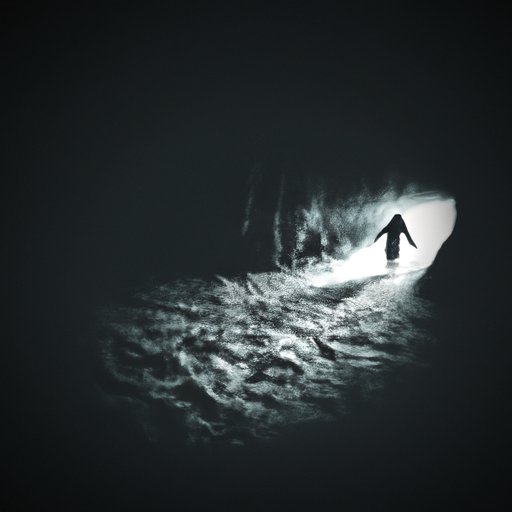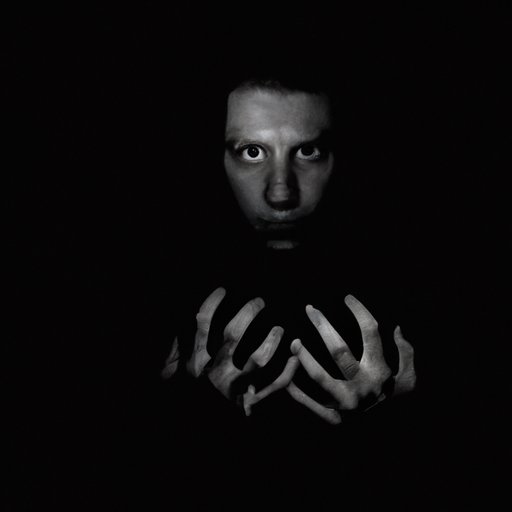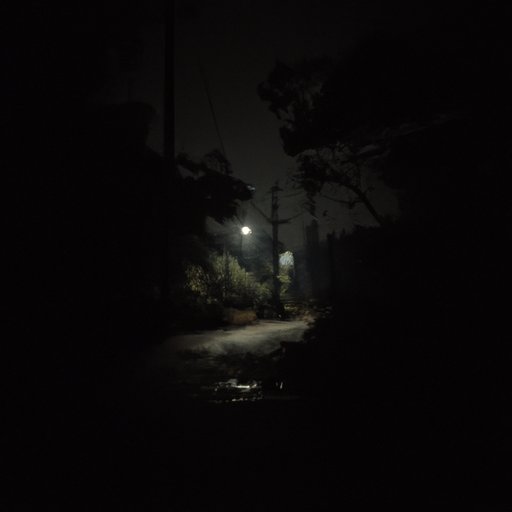Introduction
Do you ever get a feeling of dread when you enter a dark room? Are you afraid of the dark? Fear of the dark is a very common fear that most people experience to some degree. It’s usually triggered by entering a dark space or being alone in the dark. This fear can range from mild uneasiness to intense terror.
What is fear of the dark? Fear of the dark is an irrational fear of darkness or of being in a completely dark environment. It is also known as nyctophobia, lygophobia, or scotophobia. This fear can be caused by a variety of factors, such as childhood trauma, cultural influences, and biological predispositions.
In this article, we will explore the different causes of fear of the dark and provide strategies for overcoming it. We will look at the biological roots of fear, cognitive and behavioral contributions to fear, and the power of darkness. We will also discuss childhood trauma, cultural influences on fear, and various coping strategies.

Exploring Fears of the Dark: Why We Experience Fear and How to Overcome It
Our fear of darkness is deeply rooted in our biology and evolutionary history. According to Dr. John A. Johnson, professor of psychology at Penn State University, “fear of the dark is an instinctive response that has been hard-wired into our brains over the course of evolution.”
The fear of darkness is thought to have evolved as a way to protect us from potential predators and other dangers in the dark. Our ancestors lived in a world where they were constantly surrounded by danger, and so it made sense for them to be wary of the dark and anything that might lurk in it.
In addition to our biological roots, our fear of the dark can also be shaped by our cognition and behavior. Our thoughts and beliefs about the dark can increase our fear, as can our behaviors and avoidance of the dark.
There are many strategies for coping with fear of the dark. Exposure therapy is one of the most effective methods for overcoming this fear. This involves gradually exposing yourself to increasingly darker environments until your fear is reduced. Other strategies include relaxation techniques, mindfulness, and identifying triggers and sources of fear.

Understanding the Power of Darkness: A Look at Our Common Fears
Fear of the dark is often associated with fear of the unknown or unfamiliarity. We may fear what we cannot see or know, as well as what we think might be lurking in the shadows.
Fear of predators is another common fear associated with darkness. In the dark, we may feel more vulnerable to threats from animals and humans alike.
Finally, fear of the supernatural is also commonly associated with fear of the dark. Many cultures have stories and legends about monsters and creatures that only come out at night. These stories can influence our fear of the dark, even if we don’t necessarily believe them.

A Guide to Conquering Your Fear of the Dark
If you are struggling with fear of the dark, there are steps you can take to conquer your fear. The first step is to identify the triggers and sources of your fear. This could include things like stories, movies, or memories that make you feel scared or anxious.
Once you have identified the triggers and sources of your fear, you can begin to desensitize yourself to them. This can be done through exposure therapy, which involves gradually exposing yourself to increasingly darker environments until your fear is reduced.
Relaxation and mindfulness techniques can also be helpful in managing fear of the dark. These techniques can help to reduce stress and anxiety and help you focus on the present moment rather than worrying about what might be lurking in the dark.
Illuminating the Causes of Fear in the Dark
Our fear of the dark can be shaped by our childhood experiences and memories. For example, if you had a traumatic experience in the dark as a child, this could lead to a fear of the dark in adulthood.
Cultural influences can also shape our fear of the dark. Different cultures have different beliefs and stories that can influence our fear of the dark, even if we don’t necessarily believe them.
Conclusion
Fear of the dark is a very common fear that most people experience to some degree. It is rooted in our biology and evolutionary history, as well as our cognition and behavior. It can be influenced by childhood trauma, cultural influences, and our thoughts and beliefs about the dark.
There are many strategies for coping with fear of the dark. These include exposure therapy, relaxation and mindfulness techniques, and identifying triggers and sources of fear. With patience and practice, you can learn to overcome your fear of the dark and reclaim the power of the night.
We hope this article has helped you understand the causes of fear in the dark and provided you with strategies for conquering your fear. Remember, you are not alone in your fear of the dark and there is strength in facing your fears.
(Note: Is this article not meeting your expectations? Do you have knowledge or insights to share? Unlock new opportunities and expand your reach by joining our authors team. Click Registration to join us and share your expertise with our readers.)
